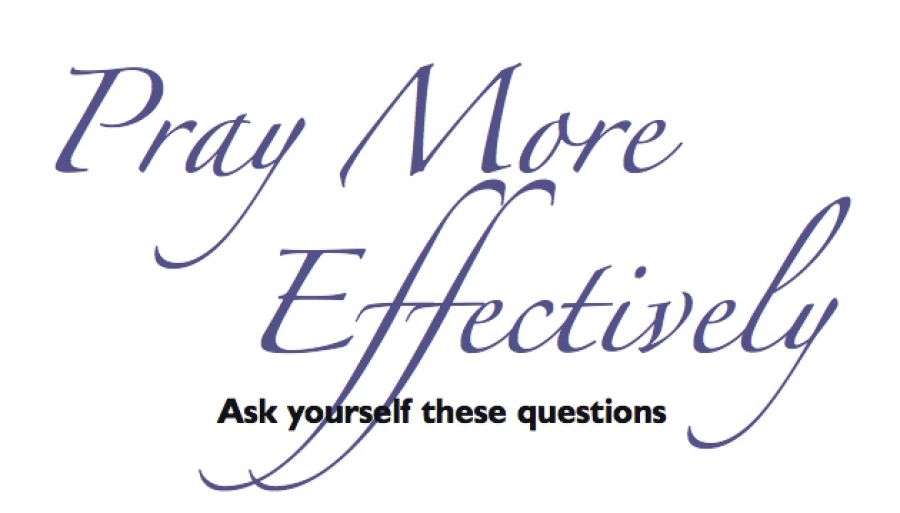MOST PEOPLE KNOW that they should pray, but few know how to do it effectively. Ultimately, prayer must include more than a “request” made to God. It has to accompany a host of other requirements that people often overlook. If you desire to make your prayers more effective, answer these eight questions and strengthen the power of your prayers.
 Question: What is your motive?
Question: What is your motive?
Our motives matter to God. Sometimes people do the “right” things for the wrong reasons. For example, someone can give everything they own to the poor, but do it primarily to be seen and praised by people. In 1 Samuel 16:7, we are taught that "People look at the outward appearance, but the Lord looks at the heart" (New International Version). Therefore, take an honest assessment of why you're praying for particular things. Is it to glorify yourself, or is to glorify God?
Question: Have you humbled yourself?
Humility doesn't mean that you think "less" of yourself. It means that you have an accurate understanding of who you are in relation to God. In today's world, we are taught that we should be self-sufficient and self-made. But when we are humble, we understand that the good things in our lives come from God. Simply put, we need Him. God gives us the ability to garner joy, peace, health, and prosperity. James 1:17 states, "Every good gift and every perfect present comes from Heaven; it comes down from God" (Good News Translation). Consequently, when you pray, humble yourself before God. Praise Him for being your provider, acknowledge how much you need Him, and trust that He will supply your every need.
Question: Do your prayers line-up with God's Word?
It's important to understand that God is not obligated to answer every one of our prayers. However, He has vowed to deliver every one of His promises – if we ask, obey, and believe. According to the Bible, "No matter how many promises God has made, they are 'Yes' in Christ" (2 Corinthians 1:20, New International Version). That means, if God's Word says we can have it, we can. So check if your prayers line-up with the Word of God. If they do, pray (with confidence) what God's Word promises.
Question: Do your prayers line-up with God's will?
Sometimes our desires won't line-up with God's desires. But as Christians, we must be willing to yield to God's perfect will. On the night before His crucifixion, Jesus prayed: "Father, if You are willing, take away this cup of suffering. But do what You want, not what I want" (Luke 22: 42, New Century Version). Even in His agony, Jesus prayed for God's perfect will – not what He desired. And when Jesus taught His disciples how to pray, He instructed them to ask that "[God's] will be done on earth as it is in Heaven" (Mathew 6:10, New International Version). Thus, when we pray, we should be willing to exchange our desires for God's perfect will. He knows what's best for us, and His vision for our lives is better than our own.








